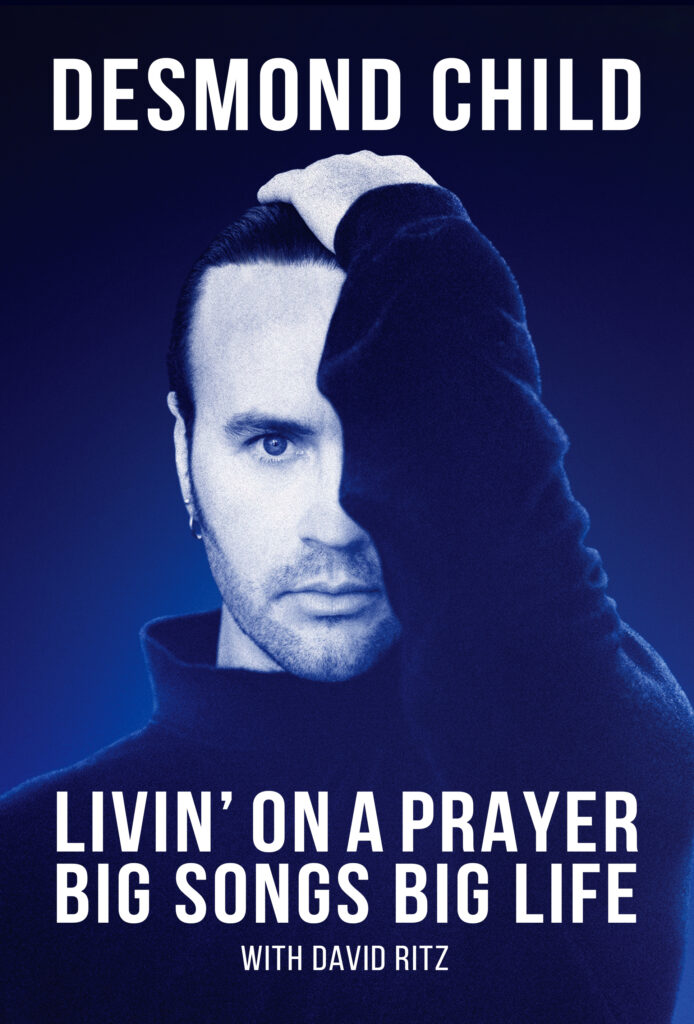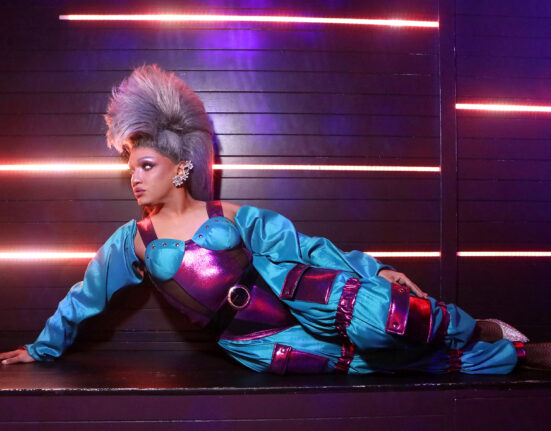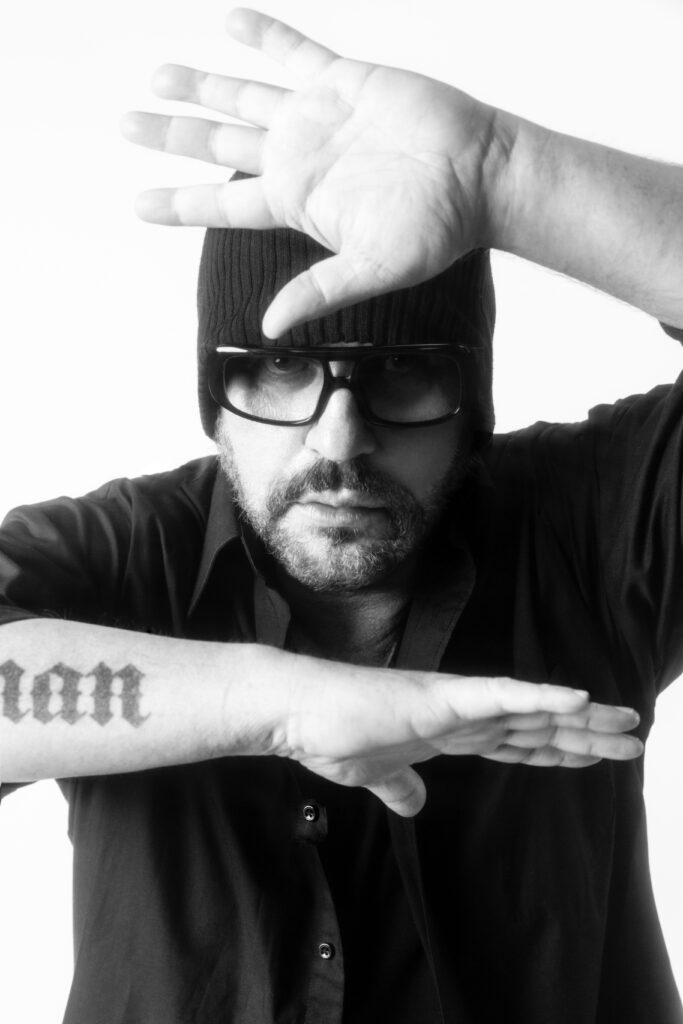
Music royalty with a career challenging the longevity that rivals the British monarchy, song creator Desmond Child is a seductive alchemist transforming the world’s anguish into a narrative of hope.
Amidst a marathon of songs with artists including Bon Jovi (“You Give Love A Bad Name”, “Livin’ On A Prayer”), Cher (“Just Like Jesse James”), Alice Cooper (“Poison”), Joan Jett (“I Hate Myself For Loving You”), KISS “(I Was Made For Lovin’ You”), Ricky Martin (“Livin’ La Vida Loca”), Aerosmith, Barbra Streisand, Michael Bolton, Chicago, Selena Gomez, INXS, Jonas Brothers…..and a limitless array of others, Child is now celebrating the unveiling of his new book, “Livin’ On A Prayer: Big Songs Big Life.” Some of the pages in his book took longer to turn than others. It didn’t matter if the flawless sheets followed a shocking one or if the proceeding lines were blurred with tears. What went before his enchanting manuscript was either erased or embraced as he begins another chapter of his luminous career.
Desmond Child has been lighting up the world like fireworks illuminating the night sky and shattering the darkness. There is an eloquence to his enthusiasm–and his continuing evolutions. When we’ve imagined that we’ve finished our story, fate has a trick of turning the page and showing yet another chapter…
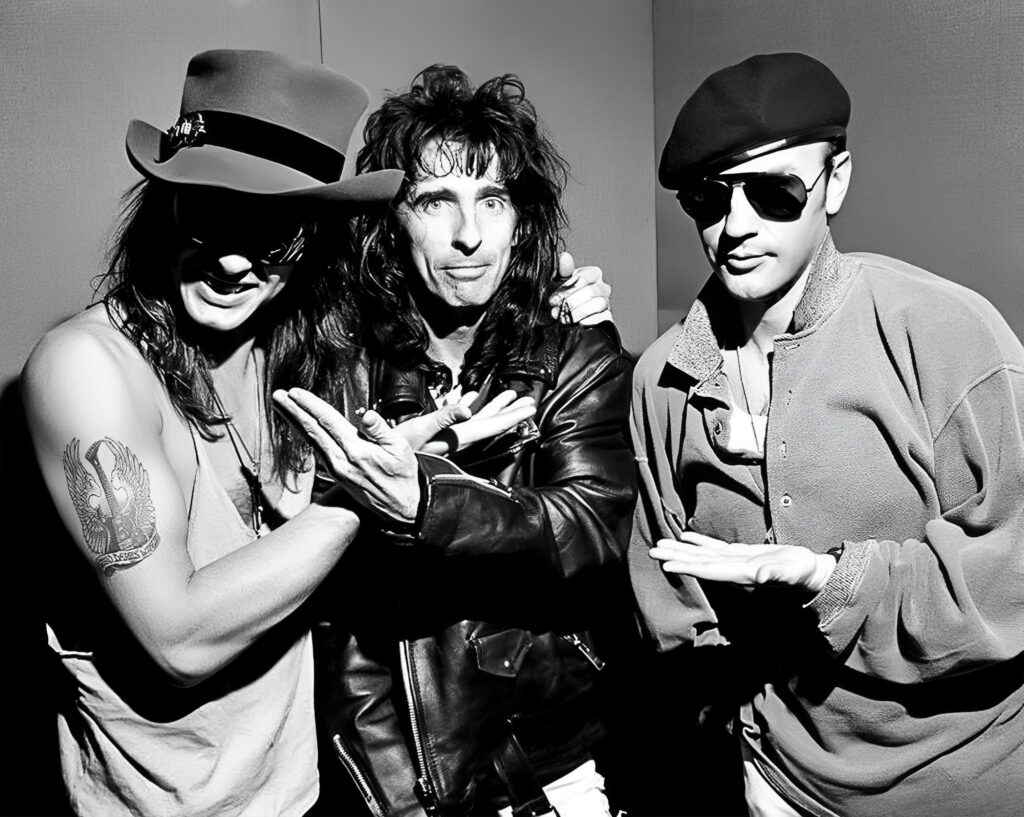
INTERVIEW >>>
Hello, Desmond. What prompted you to write the book?
The book was started seven years ago. It was my seven-year jailhouse confession. It’s been a real reckoning of my life. I wanted my sons to get to know me someday. For who I am, not just the guy with the open checkbook. Maybe someday they will pick it up and read it. It’s about all of us and our lives–how the music was intertwined not only with my life, but with the times. It’s a reflection of American life in the past century. I have the mullet hairdos and the platform shoes to prove it.
Aside from your sons, what was your defining moment of humanity? Was there a moment that you can recall that changed the trajectory of your entire life?
Well, there have been several. Meeting Paul Stanley of KISS when he came to see Desmond Child & Rouge playing at a little club called Trax on West 72nd Street in New York City. We had already gotten our record deal at Capitol Records and we were in the process of recording our first album. We were getting ready to go on and then he comes and pops his head in. He says, “Hey, I’m Paul Stanley of KISS.” We were like, “OK?” Because we didn’t know what he looked like, since we had never seen his face. He just wanted to let us know at the front table was George Harrison of The Beatles. I almost fainted. We went out there and we just killed it. And afterwards, Paul came backstage and said, “I love your music. We should try writing a song together.” So, we sort of made this deal where he would write a song with me and then I would write a song with him for Kiss. We wrote a song called “The Fight,” which we also cowrote with David Landau. Paul said, “Why don’t you come up to SIR? We are rehearsing there for our next tour. Come on your lunch break.” I showed up on their lunch break and the guys were kind of like passing me and bumping into me as I’m trying to walk past them. And I walk into the rehearsal room and there is Paul and the big grand piano on the left hand side of the stage and it had a big heavy canvas cover–you know, because KISS has no need for a piano. So, we rolled that back and we sat on the long piano bench and we wrote “I Was Made For Lovin’ You.” That changed the direction of my life. Paul was always very kind to me and served as a mentor really.
I grew up very poor, Cuban and gay. I grew up in the projects of Miami with the idea that winning was the only way I was going to be able to help my mom and get us out of the ghetto. So, I think all of the songs that I collaborate on get the engine driving towards the lift. Whether it’s lyrically, or modulating and lifting into a chorus. What was going on in my soul was being reflected in my music.
My mother was a songwriter, and that’s how it was for her. If she was sad, she would write a sad song. If she was happy or if she visited a city, she would write a tribute to the city she visited. Growing up, I didn’t realize that when people did write songs, it was the most natural thing in the world. I started out without any formal training. Even when I went to graduate from NYU, whatever I learned flew out of my mind. I really can’t read music. I can’t really play piano. I don’t play guitar. Imagine if I really studied, how much bigger I would be! It’s never a dull moment when I’m writing and I love my collaborators and I think that you know we’ve proven that by sticking together, we changed the course of popular music.
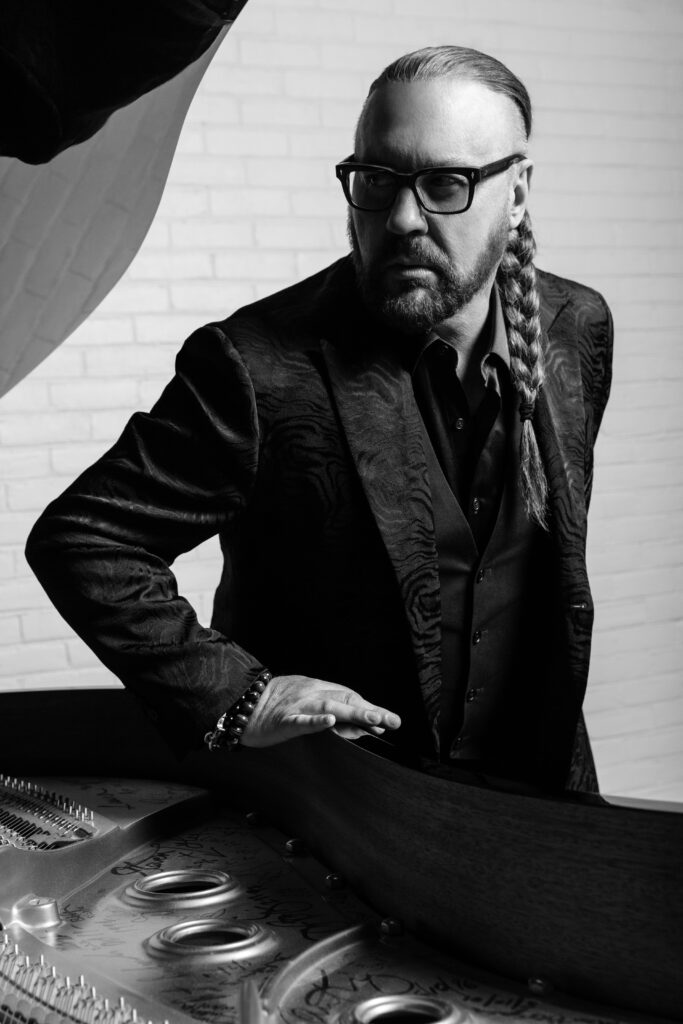
Did you ever collaborate with Diane Warren?
Yes. We have written many songs together. In the early days, I had heard a song that she had written for John Waite called “Don’t Lose Any Sleep.” Rick Nowels was producing and he is married to Maria Vidal, who actually was my girlfriend before. And she is the original Gina of “Livin’ On A Prayer.” So, I heard the song “Don’t Lose Any Sleep” and I asked, “Who wrote that?” Rick said “Diane Warren” and I was like, “I have to meet her.” I just knew we were musical soulmates. I called her many, many times. And she never would hit me back. Then my song with Bon Jovi, “You Give Love A Bad Name,” went to number one and suddenly my phone rings and it was Diane. She said, “Welcome to the Number One Club”. Those were her first words. We’ve been buddies and arch rivals ever since.
Knowing what you know now, what advice would you have given baby Desmond?
If I could have whispered in his ear, I would have told him “You are perfect the way you are.” It took me so long to have a feeling of self-esteem. It’s something that hung over me for so long and I tried so many things and so many left turns to get a feeling like I was worth something. I would tell him, “You’re on to something. Stick with it and don’t let anyone tell you that you can’t.” Maybe I would have become a better recording artist–or at least a successful one had I had that kind of confidence. But I didn’t, so, my role became kind of like helping other people to achieve their goals and dreams rather than my own.
Do you ever feel that you want to go back to that and be a recording artist?
Well, you know I’ve been recording with Desmond Child & Rouge again. We have been doing some new material and we’re working on a really beautiful special project, a tribute to the music of Laura Nyro. You’re the first I’ve told. It’s just vocals and piano. Just us singing. And you hear the beauty of our voices together. It’s really, really special. It’s just for us, really.
I read your book and I feel you hit rock bottom in the confidence level. You had no manager, no girlfriend, no boyfriend, no band. How did you recover from that lack of confidence? Or did you?
I didn’t, really. I just kept falling into cults. Especially this one cult where the leader had his gang build you up and then tear you down. And the yoyo-ing effect made me lose myself completely. Luckily, I was invited to Russia with a group of songwriters, including Diane. It was an amazing group of songwriters. We went to Russia and met young and up-and-coming songwriters there. I had a translator, Olga, who was from some southern part of Russia and a Ukrainian rock singer who looked like Jim Morrison, and they just stuck with me like glue. He would sleep on the floor next to my bed in the hotel room. It was forbidden for nationals to even talk to us, much less be up in our rooms, and they just stuck with me. And he just showed me such kindness and we really bonded.
In such a short period of time, like a week, I bonded with them more than the people I had been living with for four years in that cult. It broke the spell. That was in 1988. In 1989, I met Curtis, my husband. My life was transformed. I didn’t really have relationship skills. That one-on-one intimacy…especially with a man. It took me a long time to learn how to be a good partner. It’s in the book. We separated. And then to decide to start a family of our own. It all of a sudden was not about me anymore. They are the center of my life.
I always brought something to the table that helps people with their careers. I worked with Joan Jett–I wish I worked with her more. Our song, “I Hate Myself For Loving You”, is a classic. It became the Sunday Night Football theme. It was sung by Faith Hill, Pink and Carrie Underwood, and recently, Dolly Parton recorded the song featuring Joan Jett, and it’s on her new album called Rockstar. I’m very excited that I can now add Dolly Parton to the list of artists I have collaborated with.
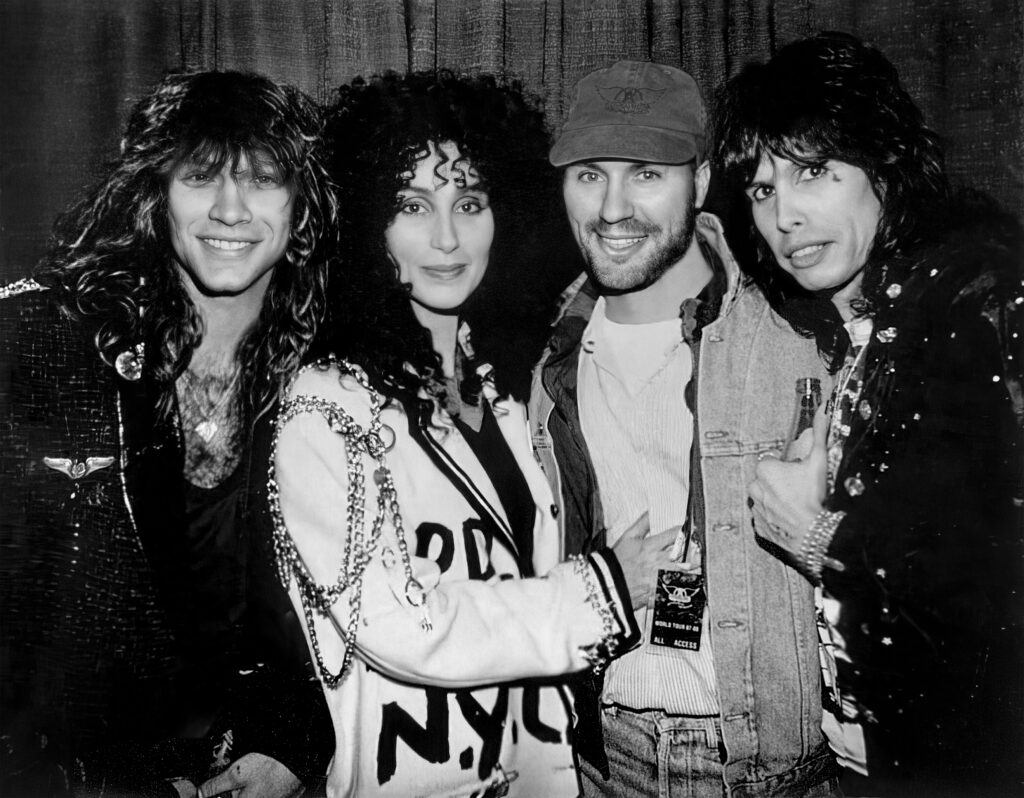
Have you had your ultimate stage fantasy yet?
My ultimate stage fantasy was more than a fantasy; it came true. It was performing at the Acropolis at the foot of the Parthenon in Greece two years ago. It was a benefit for the Acropolis Museum, to attract global attention and funding to help bring the Parthenon Sculptures back home to Greece from the British Museum, where they have been held hostage for 200 years. I sold out 4400 seats. Alice Cooper came to perform. Bonnie Tyler, Rita Wilson and more. That was my one night where I was the star. Everyone was singing songs that I had collaborated on. It was just magnificent. It was filmed and will become part of my career documentary.
You do films and stuff too, right?
Yes. We made a film that my husband Curtis and I co-produced, directed by Heather Winters, called “TWO: The Story of Roman and Nyro”. (Nyro was named after the legendary singer/songwriter Laura Nyro.) We started about 12 years ago and then our sons were like nine-ten years old and they narrate the film. It’s the story about how they came to be. You get to visit with Curtis’s family, mine and [surrogate] Angela Whittaker’s family. You can trace everyone’s stories back and see how everyone’s lives came together to create those two human beings. They always say, “It takes a village,” but with us, it took The Village People.
When you write a song, what comes first–the lyrics or the music?
Originally, I used to try to jam on chords and then kind of mumble in a little trance, hoping that my mumbles would transition and sound like words. And then, let’s say a word will come out and it will be like a little string that a bird would pick up and start a nest with. My mentor, Bob Crewe, taught me to write songs professionally. You start with knowing what you want to sing about and what you want to talk about in the song, and the strongest way to do that is to have a great title. Especially when you have the tension of opposites. Like “You Give Love A Bad Name” or “I Hate Myself For Loving You.” “Heaven’s On Fire”, “How Can We Be Lovers If We Can’t Be Friends?” That makes it easier for the words to flow. You don’t have to go through dozens of possibilities.
Is there anything that I haven’t covered that you would like to talk about?
I like to leave with “Live and help live.” My message is that we have got to stick together so we don’t lose the meager rights that we have. We have to keep resisting this horrible wave of intolerance. It’s not even rational. It’s not like we are taking anything away from anybody. We are not taking away people’s money or their jobs. It’s just simply pure hate and intolerance. People feel good if they add up a bunch of hates–it gives them a feeling that they belong to something. So one group will hate this and another group will hate that and they kind of get together and say, “Oh, we can hate two things.” They are building up a tremendously terrible situation for our country. I grew up always hearing words like “melting pot”–that our differences are our strengths–but it seems that maybe they never really believed that because they’re more empowered now, they kind of share power and go back to what they were really feeling, that they have kept quiet about. Remember the “Silent Majority”? They are not so silent anymore. That stuff is learned. Through families and communities that promote hatred. I would like to tell my LGBTQ colleagues to keep resisting and keep supporting the candidates that are for us, not against us.
